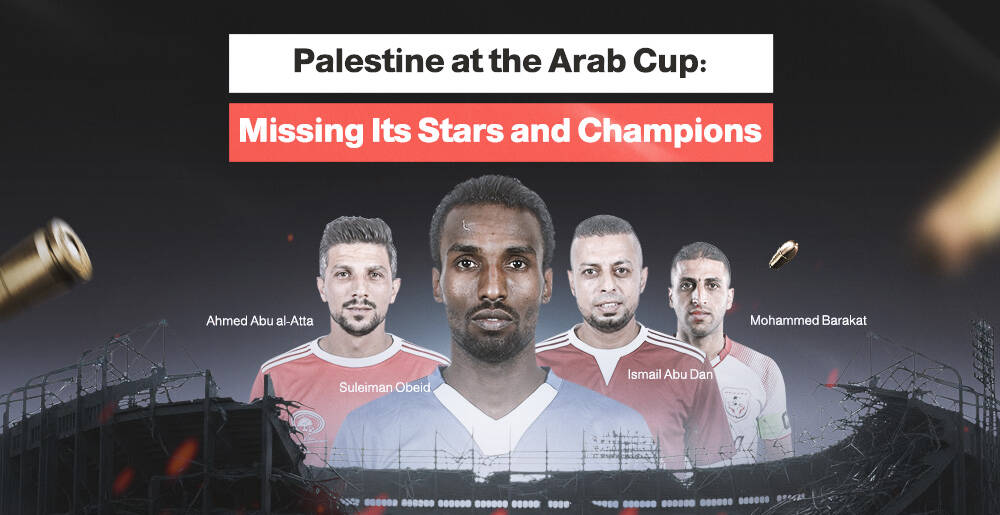Torture, Neglect, and Silence: Aboul Fotouh's Struggle in Sisi’s Prisons

Abdel Moneim Aboul Fotouh: "There is a deliberate attempt to kill me slowly."
Dr. Abdel Moneim Aboul Fotouh, the prominent Egyptian politician, leader of “the Strong Egypt party,” and former presidential candidate, is living an unrelenting saga of suffering behind the bars of Egypt’s prisons under the head of the regime Abdel Fattah el-Sisi.
A regime that has made repression its constitution and persecution its policy.
Once a symbol of political moderation and reform, Aboul Fotouh has found himself caught in a tidal wave of state brutality, pushing him to the edge of death within the confines of his cell.
His plight mirrors that of many other political figures who have faced a similar fate since the military coup of 2013, which ousted Egypt's democratically elected president, Mohamed Morsi.
This has raised profound questions about the motives behind the Sisi regime’s treatment of Aboul Fotouh.
Why, beyond his arrest, has the government opted to mistreat him systematically? And why has it resorted to a slow, deliberate form of execution through medical neglect?
Aboul Fotouh's Plight
On December 25, 2024, Egypt’s Supreme State Security Prosecution ordered the re-incarceration of politician Abdel Moneim Aboul Fotouh, charging him in a new case—his third—involving similar accusations to those in previous trials.
He was remanded in custody for 15 days pending further investigations.
Aboul Fotouh’s private lawyer, Nabeh Elganadi, announced that he attended the investigations with Aboul Fotouh, who complained at the beginning of the session about the severe deterioration of his health and the poor conditions of his detention, which lacked even the most basic elements of humane living.
"Today, after 7 years, my father is still in solitary confinement and isolation... Someone woke up from his sleep and told him, ‘Come, there’s a case from 2020, you will be investigated over it. You did things while being in a 2-meter by 3-meter solitary cell, isolated from the world, and that requires investigation,’" Aboul Fotouh’s son Ahmed wrote on his Facebook account the following day.

"The prosecutor’s decision to imprison him for 15 more days will begin once his 14-year sentence ends in 2023! Perhaps, the esteemed officials responsible for my father’s imprisonment, who is 74 years old, could close the prison cell window with plastic sheeting to block the cold air," his son added.
On December 29, human rights sources, such as the Egyptian Front for Human Rights, reported that in his most recent interrogation, Aboul Fotouh complained that he had been held in solitary confinement since his arrest in 2018.
He informed the public prosecutor that he suffers from "serious" and "chronic" illnesses, requiring medical tests he has been requesting for the past six months, but which the prison authorities have ignored, refusing him treatment or access to medication.
He described the situation as "a deliberate attempt to kill me slowly," adding, “If I weren't a doctor, I would have died from this abuse.”
Alive or Dead?
Egyptian activist Ahmed Douma, (formerly detained) spoke out about what Abdel Moneim Aboul Fotouh has been enduring in prison, sharing his testimony in a series of tweets on X about the plight of opposition politicians in Sisi's prisons.
"I will never forget that he suffered two heart attacks in one night when he was physically assaulted by Ahmed Zain, the head of investigations, and Ahmed El-Wakeel, the investigations inspector at Tora Prison."
“When I was released, there was a two-hour battle just so I could see my colleagues in the neighboring cells and greet them. Among them was Dr. Aboul Fotouh, who cried and said to me: ‘You're out? Then who will check every day if I’m still alive?’”
“I used to call out to him three times a day to see if he was okay. I’m sorry, but honestly, I just wanted to make sure he was still alive and that nothing had happened to him,” Douma concluded.
On October 10, 2022, Aboul Fotouh described the conditions of his detention inside Badr Prison, saying, "The situation is lethal."
On October 22, 2023, an Egyptian court (State Security Emergency Court) upheld the 15-year prison sentence against former presidential candidate Abdel Moneim Aboul Fotouh.
This was a final, non-appealable ruling, convicting him of "spreading and broadcasting false statements and news that could harm the national security of the country."
The military ruler had confirmed the sentence on May 29, 2022, sentencing Aboul Fotouh to 15 years of harsh imprisonment.
Unprecedented Boldness
Abdel Moneim Aboul Fotouh is considered one of Egypt’s most prominent politicians in recent decades, known for his boldness and fierceness in opposing successive regimes.
His life has been filled with confrontations with Egyptian authorities, starting with former President Anwar Sadat, during which Aboul Fotouh was a student leader.
He later faced even greater battles against the regime of former President Hosni Mubarak, when he was a doctor, the Secretary-General of the Egyptian Medical Syndicate, and the head of the Arab Medical Union, as well as a leading member of “the Muslim Brotherhood” until March 2011.
One of the most famous incidents in his career occurred in February 1977, during a conference attended by President Sadat.
Speaking as a representative of Cairo University students, Aboul Fotouh criticized Sadat’s policies.
In his remarks, Aboul Fotouh condemned the authorities for preventing Sheikh Mohammed al-Ghazali from preaching at the Amr Ibn al-As Mosque and for arresting students who had protested on campus.
In a moment of unprecedented boldness, he told Sadat that the people around him were "a group of hypocrites."
Sadat, visibly angry, responded sharply, telling Aboul Fotouh, "Stand where you are," a clear indication that he should remain silent.
Aboul Fotouh’s opposition to Sadat’s signing of the Camp David Accords with “Israel” marked the beginning of his first encounters with arrest.
He was targeted in Sadat’s infamous crackdown in September 1981, alongside politicians, officials, journalists, and Islamists, and was detained for several months.
Rejection of the Coup
During the era of the military council ruling Egypt after the January Revolution (2012-2013), Aboul Fotouh's political star rose sharply, and he ran for the presidency of Egypt.
Although his party, "Strong Egypt," called for protests on June 30, 2013, demanding the late President Mohamed Morsi call for early presidential elections, Aboul Fotouh rejected the July 3, 2013, declaration, describing it as a "coup," and also opposed the dispersal of the "Rabaa Massacre" sit-in.
These positions made Aboul Fotouh a target of the regime's attacks.
In fact, after the alleged victory of Abdel Fattah el-Sisi in the first presidential election of 2014, his media presence in Egypt diminished, and he was categorized as an opponent.
In a leaked recording broadcast by Egyptian media outlets in 2013, el-Sisi and his close associate, journalist Yasser Rizk, discussed Aboul Fotouh, with the regime leader referring to him as a "radical Muslim Brotherhood member."
El-Sisi then asked, "What would someone like Abdel Moneim Aboul Fotouh do if he succeeded?" Rizk replied, "He would hang us like sacrificial animals!" This recording clearly revealed El-Sisi's animosity toward the Egyptian opposition figure.
The moment of retribution came on February 14, 2018, when security forces arrested Aboul Fotouh on charges of spreading false news after his return from the United Kingdom, following an interview with Al-Jazeera in which he criticized the regime and described its era as a "state of fear."
Why Aboul Fotouh?
Egyptian human rights activist Mustafa Ezz El-Din Fouad described the treatment of former presidential candidate Abdel Moneim Aboul Fotouh as a systematic act by the regime aimed at eradicating the symbolic presence of a political leader or figure in the public sphere.
"Aboul Fotouh represents the troubling figure for any authoritarian regime, as the ultimate goal of a despot or dictator is to kill politics and stifle it within society," Fouad said in an interview with Al-Estiklal.
"When you have a figure like Aboul Fotouh, one who truly embodies what it means to be a politician, it is only natural that he will become a target, subjected to torture and retribution."

Human rights activist Mustafa Ezz el-Din Fouad referenced other political figures and movements in Egypt to illustrate the wider crackdown orchestrated by the regime.
He pointed to the 2019 case of “The Egyptian Hope Party,” when the regime launched a repressive campaign against liberal politicians and prominent figures associated with this civilian movement, including Ziad al-Alimi, Shady el-Ghazali Harb, and Hossam Mounis.
These individuals were arrested, alongside the raiding and dismantling of 19 economic entities linked to their activities.
Fouad also highlighted cases 621 and 441 of the Supreme State Security, which targeted numerous activists, politicians, journalists, and human rights defenders, including Shadi Abu Zeid, Sherif al Rouby, Mustafa el-Asr, and Ezzat Ghoniem, among others.
Fouad explained that the aim behind these cases was to suppress political voices and destroy the future of those challenging the regime.
"Nevertheless, we must recognize that Abdel Moneim Aboul Fotouh stands out for several reasons. First and foremost, he is a figure of consensus with immense charisma, in addition to being an Islamist with close ties to liberals and others," he added.
Fouad further noted that a large number of young people had rallied around him, adopting his rhetoric and ideology.
As a result, he argued, Aboul Fotouh became one of Sisi's foremost opponents, ranked alongside the Muslim Brotherhood, Islamists, and all advocates of freedom and democracy.
Sources
- Egypt: Aboul Fotouh Recycled in a Third Case and His Defense: Charges During His Detention [Arabic]
- A New Case for Egyptian Politician Abdel Moneim Aboul Fotouh... Widespread Outrage [Arabic]
- Egypt: Arrest of Abdel Moneim Aboul Fotouh and 6 Leaders of the "Strong Egypt" Party [Arabic]
- Abdel Moneim Aboul Fotouh: The Prison Administration Is Deliberately Killing Me Slowly [Arabic]
- Abdel Moneim Aboul Fotouh: Attempt to Dismantle the Symbol and Kill the Alternative [Arabic]
- Egypt: Final Ruling Sentencing Abdel Moneim Aboul Fotouh to 15 Years in Prison [Arabic]













